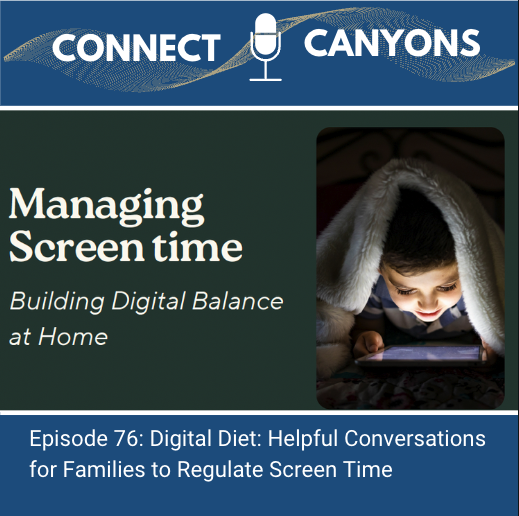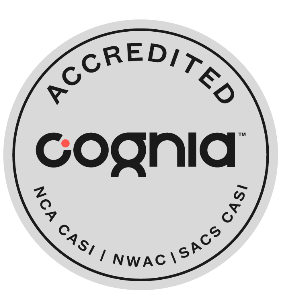In Canyon District, we teach and model digital safety and citizenship every day in our classrooms. Our goal is to empower students to use technology responsibly. More than that, we want them to use digital tools to create, investigate, collaborate, and analyze — and we view parents as valuable partners in this endeavor.
In a recent episode of Connect Canyons, we hear from teacher specialists Katie Gebhardt and Jonathan Stewart who work to support teachers and parents alike in this endeavor. These two instructional and digital teaching and learning experts have found creative ways for parents to consider how they talk to their children about screentime.
According to Common Sense Media, last year children between the ages of 11 and 17 averaged three-to-four-hours on their phone a day. Statistics also found half of teens were on their phones overnight, between the hours of midnight and 5 a.m.
“That’s a lot of interrupted sleep, which leads to mental health and mood regulation problems,” says Stewart.
Many parents with school-age children didn’t grow up with technology the way their children are, which can make it difficult for parents to help manage ways for their children to have a healthy relationship with technology. While screen time is top of mind for many parents, not all screen time is created equal. As a former high school teacher, Gebhardt taught foods and would incorporate My Plate, an update to the food guide pyramid. “The reason I like relating screen time to food is because it would be absolutely ridiculous if I said, ‘you can have as many Twinkies as you want, as long as you eat them within one hour.’”
Gebhardt stresses the importance of not just limiting screen time but encouraging more interactive screentime with high-value content. Such as using their devices to create or read, taking part in apps or games which engage their minds, rather than mindlessly scrolling through social media or platforms which don’t require a lot of thinking.
Gebhardt reminds parents to lead by example. “Or just as you’re making those positive choices in your everyday life, you’re narrating them out loud to demonstrate that you’re doing it too,” she says. “You’re showing balance and you’re making choices. That balance can go a long way.”
Continuing to have conversations with your children about good digital citizenship is key. “I think being vulnerable to include yourself as the adult in the conversation,” Stewart says, “Often times we get into fights about yes or no on certain things and don’t give alternatives, that’s where it can become problematic.”
Gebhardt recommends making a family media plan, the who, what where, when, why, and how of technology. “Who should I be communicating with?” she says, “What should I be doing with my device? It’s those conversation-starters you can have as a family of what your expectations are.”
Stewart also recommends having your children use devices in public spaces like the kitchen or dining room where parents are able to supervise and ensure they’re using them for homework rather than simply playing.
The bottom line Gebhardt and Stewart stress is balance, ensuring your children have that active screen time but allowing for some passive screen time and ensuring they see parents setting a good example.












